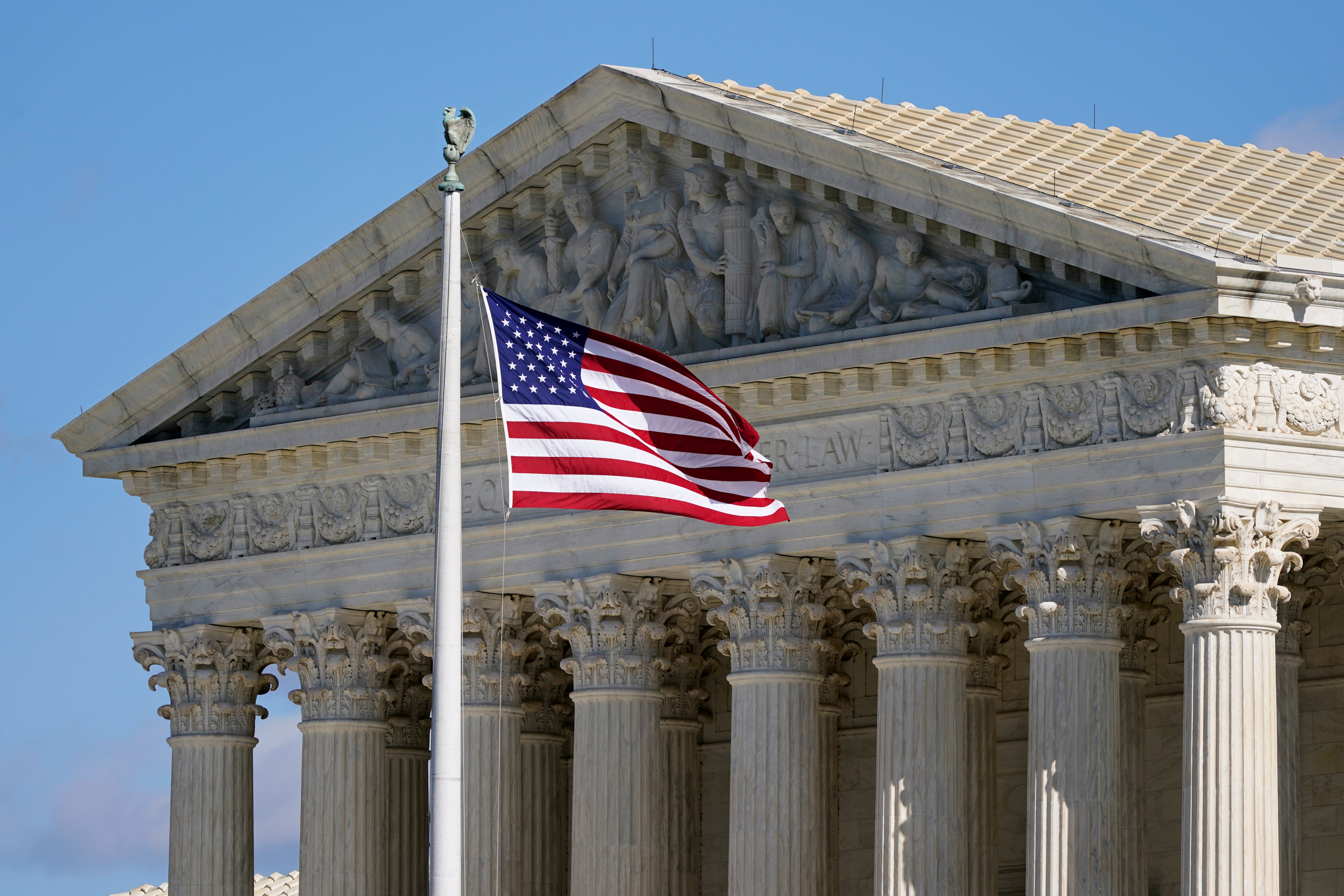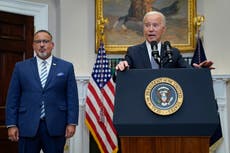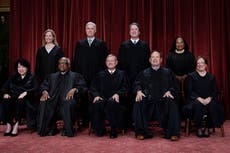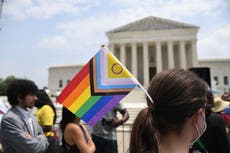Don’t feel patriotic this Independence Day? This is the history you need to remember
This 4th July, a malaise hangs over the nation like the dense smoke choking many of our cities


Your support helps us to tell the story
From reproductive rights to climate change to Big Tech, The Independent is on the ground when the story is developing. Whether it's investigating the financials of Elon Musk's pro-Trump PAC or producing our latest documentary, 'The A Word', which shines a light on the American women fighting for reproductive rights, we know how important it is to parse out the facts from the messaging.
At such a critical moment in US history, we need reporters on the ground. Your donation allows us to keep sending journalists to speak to both sides of the story.
The Independent is trusted by Americans across the entire political spectrum. And unlike many other quality news outlets, we choose not to lock Americans out of our reporting and analysis with paywalls. We believe quality journalism should be available to everyone, paid for by those who can afford it.
Your support makes all the difference.It is difficult and painful to love a country that does not always love you back.
Looking at America, with all its historic and present-day sins, it is easy – tempting, even – to despair. After a series of Supreme Court rulings on everything from affirmative action to gay rights – rulings, in line with last year’s overturning of Roe, which seem designed to roll back the promise of America – we now face an Independence Day where many of us will hardly feel like celebrating.
Being stripped of your equality and made a second-class citizen does not inspire patriotic jubilation. It does not elicit pride in your country, but the incandescent rage of righteous fury. From the creeping risk of the MAGA movement to a Supreme Court dedicated to undoing the progress of the past century, this is a moment of profound discontent.
We have been here before. Our history is an often bloody and sordid affair. The hope of the 13th and 14th Amendments were squashed under Jim Crow’s heel; it took the Civil Rights Movement, met with a violent backlash a century later, to free the South. The Seneca Falls Convention, our nation’s first women’s rights conference, occurred more than 70 years before the passage of the 19th Amendment guaranteed women the vote – a passage that came only after suffragists were incarcerated and tortured as political prisoners. Nearly a century after Franklin Roosevelt demanded “freedom from want,” we are still waiting for economic justice.
This Independence Day, a malaise hangs over the nation like the dense smoke choking many of our cities. The climate crisis, income inequality – things feel bleak. Many Americans look around at the profound troubles our nation faces and despair.
Still others look at that despair and grow irate. In their eyes, America is the best country in the world. Love it or leave it.
Both views are, in many ways, wrong. Rather than wallow in misery or disparage those who would, we should rise to the occasion. I see patriotism as a verb. Those who demand America be better are the most patriotic among us, and it is their example we are now called to emulate.
At every turn of this nation’s history, there have been trailblazers – women and men who looked to the Declaration of Independence and to the Constitution and saw a perfect ideal implemented by imperfect men. They understood the highest form of patriotism is to dissent when America is failing to live up to that ideal.
This is the most important lesson of American history. Martin Luther King, Jr famously said “the arc of the moral universe is long, but it bends towards justice.” It is a beautiful sentiment, but Dr King was only half correct. The arc of the moral universe only bends towards justice if everyday citizens force it to bend.
My living room wall is a testament to these patriots who saw in this nation the potential for a truly pluralistic, inclusive, free society in which the words “all men are created equal” are more than just an 18th century phrase, but a challenge to be met. I celebrate the women and men who held this country to account from the bottom up. They tell the story of America, but not as it is usually told.
There is Abigail Adams, who implored her husband John to “Remember the Ladies, and be more generous and favourable to them than your ancestors.” He was not. It took more than a century for women to be guaranteed the vote. They still do not have full autonomy over their own bodies thanks to this Supreme Court.
Adams’ painting hangs next to Baron Von Steuben – an immigrant and, in all probability, a gay man who came to this nation during the Revolution and is often considered the father of the United States Army. He is joined by Dan Choi, who after being discharged from the military for coming out became a leading activist against Don’t Ask, Don’t Tell. They remind me that gay men like me have always had a stake in this country, even if it does see us as second-class citizens.
Frederick Douglass and Sojourner Truth stare down at me through time. Tribal rights and environmental activist Sacheen Littlefeather looks at me next to labor activist Dolores Huerta, who herself occupies a spot near Albert Parsons – one of the Haymarket martyrs who died to advance the cause of the working American.
These are not your typical American heroes, but they are our truest patriots. Their love of America was never so shallow as to be reduced to fireworks, anthems, and flags. Their patriotism is not the bloviating jingoism, reflexive and shallow, which passes for love of country among far too many in our society. When they saw America failing to live up to its own admirable standards, they demanded it be better. Our truest American heroes – the figures from our past we revere and exalt – are the ones who moved this country forward, improving on and expanding the promise of the Declaration of Independence that “all men are created equal.”
The truest form of patriotism is not found on the Fourth of July. It is not found in the national anthem. It is not blind obedience and unquestioning acquiescence to the status quo. The truest form of patriotism is seeing your nation fail to live up to its own ethos and demanding that it do better.
Modern American history is the story of a diverse people constantly struggling to live up to an ideal first aspired to nearly 250 years ago. It is a gradual opening of Mother Liberty’s arms. In our own era, Mother Liberty is rejecting some of her children. Those children still love her, though. Why else would they be so furious, so hurt, by her rejection?
That fury is righteous, but without action it can become destructive. The beauty of democracy is that nothing is ever settled and we live to fight another day.
Those of us who see this nation as an inclusive, pluralistic bastion of freedom and equality must perform our patriotic duty of holding America to account. We still have our voices, our ballots, and if that fails our feet.
We need only look to the example of our ancestors for inspiration. Not the great men of many textbooks, but the true American heroes who have forced this country to progress. Just as the Civil Rights Movement marched, as the miners at Matewan fought, as the drag queens of Stonewall revolted, we must now rise to meet this moment and ensure America continues to improve upon its founding promise.
One of the most iconic songs of the Civil Rights Movement, “We Shall Overcome,” was not just an anthem, but a vow. The overcoming of inequality and the continued struggle to make us an ever more perfect union is the work left to us by the Founders and every subsequent generation. We have not yet overcome, but we shall.
Nearly 250 years later, we continue to march forward and strive for perfection despite our past and current imperfections.
We stand on the shoulders of giants. This Independence Day, let us become them.




Join our commenting forum
Join thought-provoking conversations, follow other Independent readers and see their replies
Comments